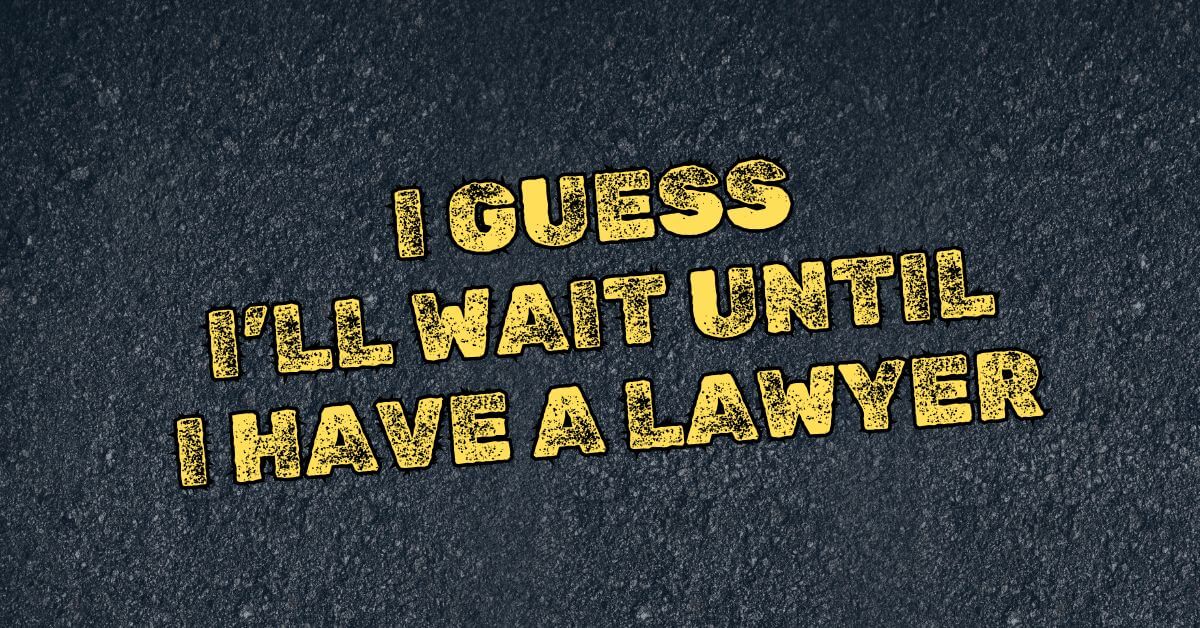Today’s case from the Eighth Circuit involves officers locating two naked fugitives and conducting a protective sweep. ATF was later called in when a firearm was found during the initial search. Two cases to note to better understand our case today. First, in United States v. Cedano-Medina, the standard was set that a “warrantless search is valid if conducted [based on] knowing and voluntary consent”. In other words, if you get someone’s consent, you absolutely do not need a warrant. Our second important case of the day is Maryland v. Buie, where the Supreme Court held that officers can conduct “a quick and limited search of premises incident to an arrest” when they have a reasonable belief there might be others present who pose a danger to them. In today’s case officers walked in on two naked fugitives, one with a long list of outstanding arrest warrants. I’d say that counts as posing some kind of danger. Let’s see what the court says.
FACTS
Anthony Whitehead was wanted on several arrest warrants, including one for the attempted kidnapping of Brittney Lark. While searching for the pair, a Deputy United States Marshal found a room registered in Lark’s name at a Kansas City hotel. When officers went to the room and knocked on the door, Lark answered it. The officers ordered Whitehead, who was lying on the bed, to walk towards them and lie down outside the threshold of the door, where they handcuffed and arrested him. While retrieving Whitehead’s pants for him, an officer discovered a baggie of cocaine in one of the pockets. In the meantime, the remaining officers conducted a “protective sweep” of the hotel room to determine if anyone else was present. When one of the officers checked under the mattress, he discovered a pistol. Rather than seizing it right away, the officers called agents from the ATF to determine how best to proceed. Upon their arrival, the agents asked for Lark’s consent to search, and once she gave it, they had her sign a consent-to-search form. Only then did the agents enter the room to retrieve the gun. The government charged Whitehead with drug and firearm offenses. Prior to trial, Whitehead filed a motion to suppress the gun. The district court denied the motion and Whitehead appealed.
EIGHT CIRCUIT COURT OPINION
Even assuming that Whitehead had “a legitimate expectation of privacy” in the hotel room, despite not having been a registered guest, the Eighth Circuit Court of Appeals agreed with the district court that the protective-sweep exception to the Fourth Amendment’s warrant requirement justified the initial search of the room according to Maryland v. Buie.
In this case, when Lark opened the door, the room was dark, the officers saw movement, and they could not tell how many people were there. Combined with Whitehead’s extensive criminal history, the court found that these facts gave the officers a reasonable belief that there might be others in the room who posed a danger to them.
The Court also held that the search was “quick and limited,” as it lasted approximately two minutes and was limited to looking only in places in which a person might be hiding. The court added that the officers did not exceed the scope of a protective sweep by checking under the mattress, given that one of the officers testified that, in his experience, fugitives sometimes hide there.
The court also agreed with the district court that Lark’s consent justified the later reentry into the room to seize the gun. Lark, who was the registered occupant of the room voluntarily consented during a “fairly cordial” conversation with officers, who did not threaten her or make any express promises. The court commented that even though Lark was under arrest at the time, that fact by itself did not prevent her from voluntarily consenting to a search of the room.
Whitehead also tried to argue that there was insufficient evidence proving that the gun was his. According to United States v. Ellis, constructive possession exists when a person “has dominion and control over the firearm itself or over the premises in which the firearm [is] located.” In other words, Whitehead was found lying naked on the bed where the gun was, showing that he has control over the weapon. Tack on that his DNA was later found all over the grip of the gun (shocker). There were other DNA traces on the gun as well, but the Court found that there was still enough evidence to convict Whitehead.
TAKEAWAYS
The officers in today’s case did everything right – they were polite and calm with Lark and they asked ATF to step in when they originally found a weapon. The Court noted that ATF never once pressured Lark or made any promises to her about if she let them search the room, which helped the overall case. Lark was also asked to sign a consent-to-search form, which is a great way to prove consent later. We all know how Courts love their paperwork. If you don’t currently have a consent to search form as part of your policy it may be a good idea to look into them.
United States v. Whitehead, 995 F.3d 624 (8th Cir. 2021)



